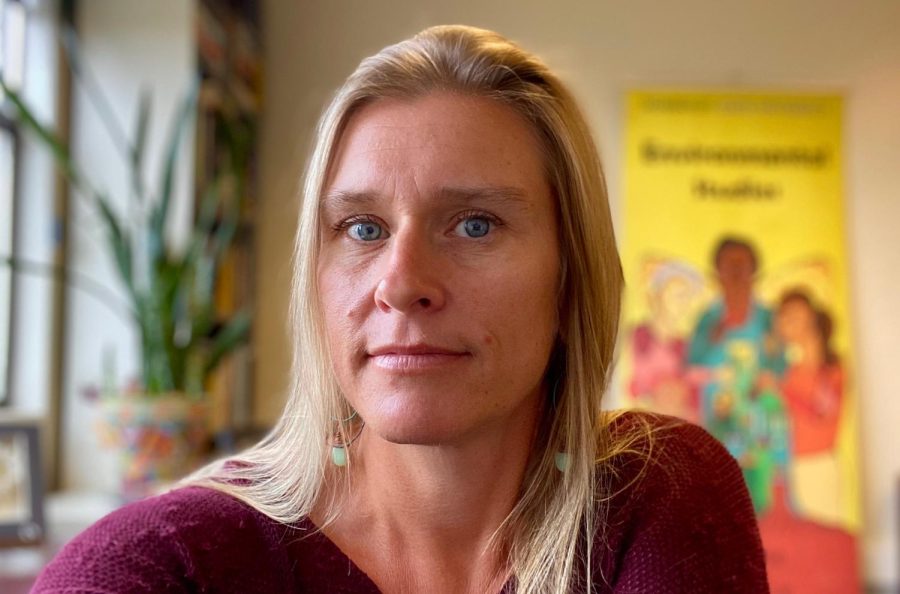Q&A with Dr. Sarah Jaquette Ray
February 2, 2022
Meet Sarah Jaquette Ray, author of “A Field Guide To Climate Anxiety: How to Keep Your Cool on a Warming Planet,” which she discussed in a virtual event on Feb. 1. Currently a professor at Humboldt State University, Ray received a Bachelor of Arts in Religious Studies with a minor in Women’s Studies from Swarthmore College, and a Master of Arts in American Studies from the University of Texas. Ray completed her doctoral studies at the University of Oregon in Environmental Sciences, Studies and Policy after becoming interested in the social justice aspects of environmental issues.
Q: What first interested you in environmental studies?
A: I was taking graduate courses in American Studies. I was interested in being interdisciplinary, and in doing something related to social justice, but it wasn’t until I took a course with Diana K. Davis that I realized the environment and “nature” was a really important and understudied lens through which to think about social justice, which seemed counterintuitive at the time. I came to environmental studies because it seemed like a wide-open field for interdisciplinary innovation, especially in the humanities, and because there was this big gap I wanted to help bridge between environmental ideas and social justice. It felt important and real, not just academic or irrelevant.
Q: What kind of connections, if any, do you find within religious studies and environmental studies?
A: There are several answers. The easiest one is that religious beliefs are at the foundation of different communities’ views of nature, and therefore their relative symbiosis with or harm to nature, such as dominion vs. stewardship, indigenous wisdom and reciprocity and animism, Cartesian dualism coming out of Enlightenment, capitalism and the “protestant ethic.” Second, and relatedly, as Gus Speth, Robin Wall Kimmerer, and others have famously written, science doesn’t have all the answers. The revolution to care about the harm we do to each other and the land will be one of the heart and a moral one.
Q: Living in dorms and apartments, it may feel difficult as college students to “do our part” in combating climate change. What can we do to help?
A: College students are in a lab for the work they’ll do for the rest of their lives. Why wait? We need to develop the practices early and often of building community, learning how to balance self-care and activism, figuring out where your advocacy meets your passion, gaining experience leading, participating, joining and showing up. All of this can be done right now. Scale is a myth. Small is all, as Adrienne Maree Brown reminds us. We are the ocean in a drop, like a rhizome. Also, youth have a unique superpower. They are more adaptable, energetic and idealistic. They occupy a rhetorical position of moral authority to hold others accountable… Use it!
Q: What would you tell your younger self and why?
A: So much. Your powerlessness is a myth capitalism is selling. Don’t buy it. Know yourself and don’t be controlled by your fear of others’ views of you or pleasing others. Be alone more, be silent more. Don’t fill voids. Discomfort isn’t a sign you’re doing something wrong.
Q: What animal would you be and why?
A: A manatee. Just look at them! Totally chill.
Q: What are your top three hobbies?
A: Talking one-on-one with close friends, especially with coffee and a really good pastry. Traveling and learning about other places and people. Laying in bed for hours in the morning to read or meditate, journal, be alone with myself.



